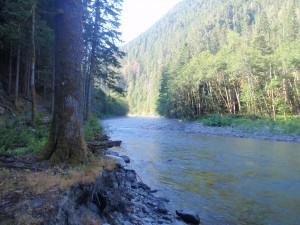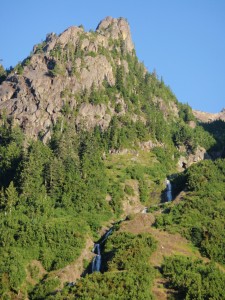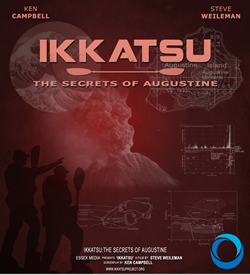
Declining baselines; A Slow fading of the light
The idea of declining baselines is something that, while we are slow to see it and loathe to acknowledge it, we all instinctively know for what it is. It doesn’t take us long to understand the implications once we do give the idea some consideration.
The concept is simply this: over time, constantly worsening environmental conditions are seen as being normal. Changes, while typically detrimental, happen incrementally, under the radar and can be hard to spot. For this system to work, it requires that we not dwell too heavily on the past and there is a tendency to forget what has come before. It’s a combination of acceptance and amnesia, more of a rationalization tactic than an actual lifestyle choice.
The planet that we have inherited, this home-world that we are passing on to our own children, is not the place it once was. Our oceans are greatly depleted of life, from the smallest plankton to the largest whale. The salmon that once ran thick up the rivers are gone, or mostly so. The virgin forests that once covered most of the continent have been almost entirely erased. The force behind these and so many other changes has been human activity and interests. It’s hard not to see the effect that people are having on our natural world, hard not to call it out as the mass insanity that it is.
But we don’t see the effects. We do all we can not to notice, because it hurts to think about. Instead, we go out looking for whales and when we see them, we talk for days afterward about how magnificent they are. We don’t wonder why there are less every year, why they seem harder to find. And we still fish for salmon, they still return to their natal streams and we are in awe of nature’s beauty when we see a few dozen battling the current of a mountain river. But we don’t think about the fact that, not that many years ago, there would have been a few  thousand. As for the forests, we all know what has happened to them. There was a time, as late as the mid-1600’s, when it would have been possible to hike from the east coast of North America to the Mississippi River without ever being out of the shade. Now we go to the redwoods, to the Olympic rainforest, and we stand again in awe of it all. All that life. But we don’t like to think about the old boreal expanses and since we never knew them, it isn’t that hard. They seem mythic now, as if after so long without them, we have begun to doubt that they really existed. It’s easier that way.
thousand. As for the forests, we all know what has happened to them. There was a time, as late as the mid-1600’s, when it would have been possible to hike from the east coast of North America to the Mississippi River without ever being out of the shade. Now we go to the redwoods, to the Olympic rainforest, and we stand again in awe of it all. All that life. But we don’t like to think about the old boreal expanses and since we never knew them, it isn’t that hard. They seem mythic now, as if after so long without them, we have begun to doubt that they really existed. It’s easier that way.
In his brilliant essay, Confessions of a Recovering Environmentalist, Paul Kingsnorth put it this way. “Everywhere an image, a phrase, a demand, or a recommendation is screaming for my attention, trying to sell me something, tell me who to be, what to desire and to need. And this is before the internet; before Apples and BlackBerries became indispensable to people who wouldn’t know where to pick the real thing; before the deep, accelerating immersion of people in their technologies, even outdoors, even in the sunshine. Compared to where I have been, this world is so tamed, so mediated and commoditized, that something within it seems to have broken off and been lost beneath the slabs. No one has noticed this, or says so if they have. Something is missing: I can almost see the gap where it used to be. But it is not remarked upon. Nobody says a thing.”
 For whatever reason, we have yet to learn the lesson that we are part of nature, not somehow separate from it. We are dependent on these habitats that we are so rapidly destroying. It is probably too late to do anything that would change the impact and consequences of global climate change, and we can’t even be sure about what the exact consequences will be. Forces have been set in motion that that will take centuries (and possibly much longer), to play out. It falls to us now, if we can, to protect and save the wild places that remain, that they might serve as reminders of what was once plentiful.
For whatever reason, we have yet to learn the lesson that we are part of nature, not somehow separate from it. We are dependent on these habitats that we are so rapidly destroying. It is probably too late to do anything that would change the impact and consequences of global climate change, and we can’t even be sure about what the exact consequences will be. Forces have been set in motion that that will take centuries (and possibly much longer), to play out. It falls to us now, if we can, to protect and save the wild places that remain, that they might serve as reminders of what was once plentiful.
It is also incumbent on us to preserve – in photographs and prose – the views that we can still get of the wild. James Balog, of the Extreme Ice Project, was speaking about his work photographing the receding glaciers and the disappearing snowpack in the northern latitudes, but he could have been speaking about any of these environmental threats, or all of them: “Maybe all we’re doing is preserving a moment in time for the historical record,” he says. “Here’s how it was, sorry we messed it up.”
That’s not very optimistic, but there you go. The catastrophic impacts of declining baselines rely on acceptance and amnesia, and this is an area in which environmental writing can have an impact of its own. To be able to go out into the vestiges of wilderness that remain to us, to listen to the stories that the land has to tell, and to return to tell those stories to others: this is a valuable service and a high calling. We write for the same reasons we take photographs. We want to preserve a moment to the extent that we can and we want to be able to show future generations what was, and what could be.











